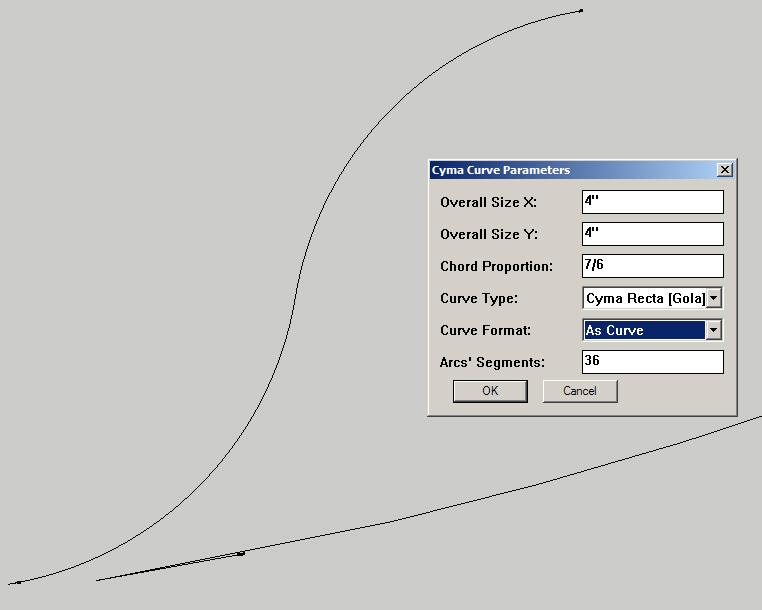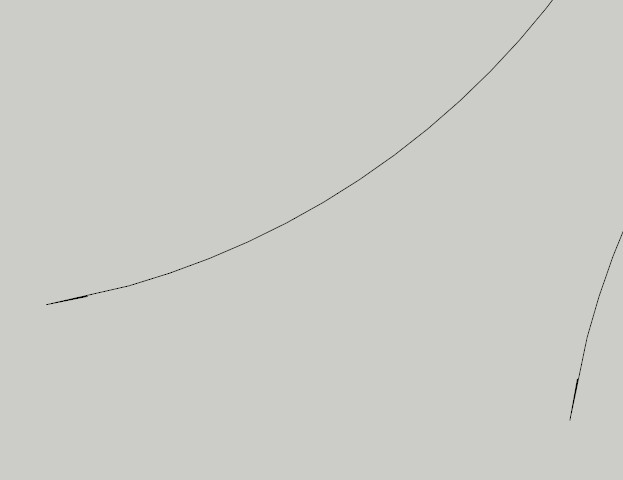[Plugin] Cyma Curve Tool
-
Three cheers! You've saved me loads of time, this is a much needed tool! My (paypal) check's in the mail!
-
Thank, I have it already [£]... watch out for some other tools that are in the pipeline...

-
-
Thanks. I'll add it to a future update - in the meanwhile any users wanting Chinese locale lingvo can extract this and put it into their ../Plugins/TIGtools/ folder...

-
I had used a different deBabelizer version instead of the one included with this plug, so simply replacing that with the one included... well, that fixed it! thanks


-
All current versions of
deBabelizer.rbare identical so it shouldn't cause problems, as long as you have one - I distribute a copy of it with each tool that will use it in case you haven't already got a copy in Plugins...
It's the tool needed to translate the wording of prompts and dialogs etc to your 'locale' language, if there's a 'lingvo' file found to match it - most commonly these are EN-US [English - the base default], and FR[ench] and ES[panish], and sometimes ZH-CN [Chinese] or other 'locale' codes - but any 'locale' that's returned by the system is supported if you copy/rename a lingvo file and translate the phrases in it... If you are picky you could even 'translate' the base EN-US lingvo version so it says different things - e.g. 'colour' vs 'color' if you are not American but you have a EN-US locale - or even into 'Esperanto' phrases etc where that is not an official 'locale' !

-
Hi TIG - thanks for the great tool : I'm experiencing this glitch in 8 using 1.5 -

-
I tested it with exactly the same dialog and Units settings and it works fine for me - the only difference is I have Vista rather than XP, but that shouldn't make any difference

At first I thought it might be because you had units displayed and accuracy set to no dp's - 4" versus 4.000 BUT that makes no difference to me either...
Can you get it to work with other permutations of settings or Units ? -
I just tried it with the same settings, V8 on XP and had no problems with it.
-
@tig said:
Here's an explanation of the the 2 types of Cyma Curve...
I tried to use this to make pipe transitions: bend the pipe x-inches and continue in the original direction.
A ratio of 1.414 does not result in vertical for me (both ends do not extend parallel)
Also, a "follow-me" circle most often results in a long tapering cone off of the opposite end!
-
@bob james said:
@tig said:
Here's an explanation of the the 2 types of Cyma Curve...
I tried to use this to make pipe transitions: bend the pipe x-inches and continue in the original direction.
A ratio of 1.414 does not result in vertical for me (both ends do not extend parallel)
Also, a "follow-me" circle most often results in a long tapering cone off of the opposite end!
Bob
A Cyma Curve is really for making moldings and profiles, and not for 'followme' pipe bends...
A ratio of 1.414 won't give exactly parallel start/ends as it's not exactly sqrt(2) - To enter the more 'exact' value typesqrt(2)- it's easier that typing 1.414213562373095050 etc...
However even that will give slightly 'off vertical' ends, as the tolerances in the Maths etc...For some reason the Cyma Curve will not always make a good 'followme' path with PipeAlongPath - but with 'vanilla' FollowMe it's better...
If you add short horizontal bits on the ends of the Cyma Curve and use the three as the path it should then give vertical terminations, like this...You can then move the end circles horizontally to change the 'leg' length as desired...
-
Thanks, TIG.
I realize using this tool for pipes (actually it's more often for electrical conduits) is a little "out of the box", but it was the first thing that popped into my mind when I saw it. Besides, even with adding short segments it's faster than drawing arcs or using bezier curves.
Neat tool
P.S. I was using the vanilla follow-me tool (but, yes, in the "real world" I would use Pipe-Along Path). Sometimes, however, SU does not recognize it as a legitimate path.
-
Can you please explain the formula 2Y/sqrt(XX+Y*Y), particulrly the /sqrt part, i'm not familiar with the american way of math writing. Thank you!
Also, I thought the two parts of the curve were supposed to be different, based on Chord proportion [to make them undulate in such beautiful manner
 ]?
]?Even if X and Y are different, the radius is the same, but I might got this all wrong

-
2*Y/sqrt(X*X+Y*Y)
The X and Y are the curve's enclosing rectangle's sizes.
The '' is 'multiply by' [×] - so that in this case it is 2 times the Y value [2Y].
The '/' is 'divide by' [÷].
The 'sqrt' is the standard abbreviation for 'square-root'.
You can also use 'sqrt(nn)' in the ;input;, substituting 'nn' with the required numerical value - it will then find the square-root for you: you can only add a number, not a formula...
The '()' are used to show that you do the calculations inside them before taking the square-root. Also the '*' parts within them are done before the '+'. Note that the part to the right of the '/' is basic 'Pythagoras' stuff...
The default tool makes 'perfect' aesthetic curves according to the ancient rules explained in the help-text, but quite often these proportions are adjusted for other reasons, hence the opportunity to customize the values... -
I still get the weird glitch at the bottom of the cymas with all different settings, new windows 7 build, new sketchup installs, and downloading the newest version here... maybe its a plugin conflict???
after exploding, deleting the extra piece and then welding again, the dimensions are still what was input in the dialogue

-
Here's a new future-proofed update.
http://sketchucation.com/forums/viewtopic.php?p=230584#p230584 -
Here an up date http://sketchucation.com/pluginstore?pln=CymaCurve
Tweaks to lingvo files for v2014 compatibility.
Advertisement







